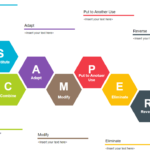Introduction
Georgia Tech’s Computer Science program has long been a beacon of innovation and excellence in the tech world. With its rigorous curriculum and cutting-edge research, it attracts students from all over the globe eager to make their mark in computing. However, recent developments have brought about significant changes that are capturing attention: the program is splitting into more specific threads. This shift promises to refine learning experiences and better prepare graduates for an ever-evolving job market. But what does this really mean for current and future students? Let’s dive deeper into this transformative move by Georgia Tech.
The Changes Made: Why Split the Program?
Georgia Tech’s Computer Science program has undergone significant changes recently. The decision to split the program into more specific areas was driven by the rapid evolution of technology and industry demands.
As tech continues to advance, a generalized approach can sometimes fall short. Employers are increasingly looking for candidates with specialized knowledge in niche fields like artificial intelligence, cybersecurity, or data science.
This shift acknowledges that students have diverse interests and career aspirations. By offering concentrated pathways, Georgia Tech aims to equip graduates with targeted skills that align closely with job market needs.
Furthermore, specialization promotes deeper learning experiences. Students can engage more thoroughly with their chosen topics, fostering expertise that stands out in crowded job markets. This tailored education prepares them not just academically but also practically for real-world challenges they will face after graduation.
Pros and Cons of the Split
The split of Georgia Tech’s Computer Science program into specialized areas brings a mix of benefits and drawbacks.
On one hand, students can now tailor their education to specific interests like artificial intelligence or cybersecurity. This focused approach may enhance engagement and motivation among learners eager to dive deep into a particular field.
However, some argue that this division might narrow the breadth of knowledge acquired by students. Graduates could find themselves well-versed in one area but lacking versatility in broader computer science principles.
Additionally, the increased number of specializations may lead to confusion during course selection. New students might feel overwhelmed trying to choose the right path amidst so many options.
Networking opportunities could also be affected. With more specialized tracks, fewer chances exist for collaboration across diverse fields within technology itself.
Details on the New Specializations
Georgia Tech’s Computer Science program now offers an array of tailored specializations. These new threads are designed to meet the diverse interests and career goals of students.
Students can dive into areas like Artificial Intelligence, Cybersecurity, Data Science, and Human-Computer Interaction. Each specialization provides focused coursework that equips graduates with relevant skills for today’s job market.
For instance, the AI track emphasizes machine learning algorithms and data-driven decision-making. Meanwhile, Cybersecurity focuses on protecting systems from cyber threats.
This shift allows students to create a more personalized educational experience. It empowers them to align their studies closely with industry demands while enhancing their expertise in specific domains.
With these changes, Georgia Tech is positioning its graduates as highly qualified candidates ready to tackle complex challenges across various sectors.
How Students Can Choose a Specialization
Choosing a specialization in Georgia Tech’s newly structured Computer Science program can feel overwhelming. However, students have several resources at their disposal.
First, exploring each specialization’s curriculum is essential. Look closely at course offerings and prerequisites to find what excites you the most.
Second, seek advice from academic advisors or faculty members who can provide insights based on your interests and career goals. Their experience can help clarify which path aligns with your strengths.
Networking with current students is another valuable strategy. They can share firsthand experiences and recommend courses that best prepare you for specific industries.
Consider internships or projects during your studies to gain practical exposure in various areas before making a final decision. This hands-on approach will enhance both understanding and confidence in choosing the right specialization for you.
Potential Impact on Job Prospects for Graduates
The recent split of the Georgia Tech Computer Science program into more specific specializations brings both excitement and apprehension regarding job prospects.
With a focus on niche areas, graduates can expect to stand out in competitive job markets. Employers often seek candidates with specialized skills that directly align with their needs. This targeted training could give students an edge upon entering the workforce.
However, there are concerns about limiting options. Some fear that narrowing the curriculum might restrict versatility. In an ever-evolving tech landscape, adaptability is key.
How well students leverage their newfound expertise will determine success. Networking and internships will continue to play vital roles in shaping career paths for these graduates as they navigate this new terrain of specialization.

Thoughts from Students and Faculty Members
Students and faculty members have mixed feelings about the split in Georgia Tech’s Computer Science program. Many students welcome the opportunity to dive deeper into specific areas of interest. They appreciate how specialized tracks can better align with their career goals.
However, some express concerns over narrowing their focus too soon. They fear this might limit exposure to broader fields within computer science that could be valuable later on.
Faculty members generally support the initiative, recognizing it as a response to industry demand for specialized skills. Yet, they worry about maintaining a cohesive foundation in core principles amidst increased specialization.
The conversation around these changes is vibrant and ongoing. Students often engage in discussions about which path offers the best job prospects, while faculty ponder how to adapt curriculum effectively without sacrificing essential knowledge.
Why Georgia Tech Computer Science Program Split into More Specific Threads Matters
The recent split of Georgia Tech’s Computer Science Program into more specific threads is significant for several reasons.
First, it addresses the evolving landscape of technology. As industries become increasingly specialized, students need targeted knowledge to meet employer demands.
Second, this change allows students to dive deeper into their areas of interest. Rather than a broad curriculum, learners can focus on what truly excites them—be it artificial intelligence or cybersecurity.
Additionally, having defined specializations enhances collaboration among peers with similar goals. This fosters networking opportunities that are crucial in today’s job market.
As companies seek candidates with niche expertise, these new paths could lead to better job placements and career growth for graduates willing to embrace specialization.
Unlock Your Potential: Georgia Tech Computer Science Program Split into More Specific Areas
Unlocking your potential in the rapidly evolving tech landscape is crucial. Georgia Tech’s decision to split its Computer Science program into more specific areas reflects this necessity.
Students now have the opportunity to hone in on their interests, whether it’s artificial intelligence, cybersecurity, or data science. This tailored approach allows for deeper understanding and mastery of complex topics.
With specialized tracks, learners can align their studies with industry demands. They will emerge as experts equipped with relevant skills that employers seek.
Moreover, choosing a specialization fosters engagement and passion for one’s field of study. It transforms education from a broad experience into a focused journey toward career aspirations.
This shift is not just about academics; it’s about preparing students for real-world challenges they will face post-graduation. The future looks bright for those willing to embrace these new opportunities within Georgia Tech’s innovative framework.

Conclusion: Will This Change Benefit or Harm Georgia Tech’s Computer Science Program?
The recent changes to the Georgia Tech Computer Science Program, splitting it into more specific areas of focus, have sparked a diverse range of opinions. Some see this as an opportunity for students to tailor their education according to industry demands and personal interests. Specializations can provide deeper knowledge and skills that set graduates apart in a competitive job market.
On the other hand, there are concerns about losing the broad foundation that traditionally characterized computer science programs. A narrower focus might limit exposure to other important disciplines within tech.
As prospective students weigh their options, it’s essential to consider both sides of this transformation. The ability to specialize may enhance employability but could also lead some learners away from a holistic understanding of computer science principles.
Whether this split serves as a boon or bane will depend on how well the program adapts over time while meeting student needs and aligning with workforce trends in technology. Time will tell if these changes elevate Georgia Tech’s reputation further or create unforeseen challenges for its graduates navigating the tech industry’s ever-evolving landscape.










